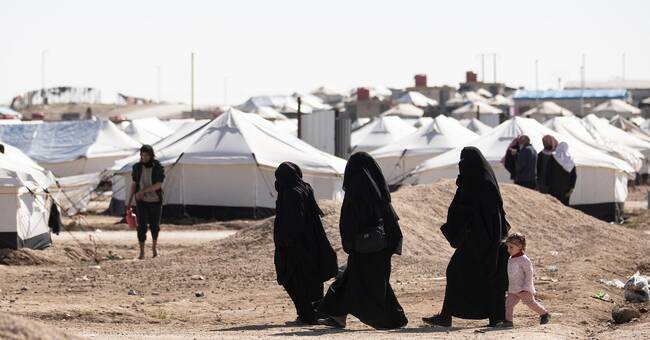A delegation from the Swedish Ministry of Foreign Affairs has in recent days been on site in northeastern Syria to hold talks with the Kurdish authorities.
One issue that has been discussed is the legal proceedings against the Swedish women who have joined IS.
- In fact, the legal proceedings have already begun.
During the summer, we have taken a closer look at each case.
In January or February 2021, it is realistic that the trials against the women will begin, says Shiyar Ali, the Kurdish self - government representative in Sweden who was on the trip.
Will investigate the future of children of IS supporters
One goal of the Swedish delegation's journey is to discuss what should happen to the children of the Swedish IS supporters.
- Most children are small.
Therefore, support is needed to build a children's center where the children can be under more normal circumstances.
Where there may also be a school during the legal proceedings, says Shiyar Ali.
In the past, Kurdish authorities have called on Western countries to repatriate their own citizens who traveled to IS in Syria.
Few countries have listened to the call.
The Kurdish self-government instead wants all Swedish IS women to be brought to justice on the spot.
- We are prepared to send the orphans and the humanitarian cases to Sweden.
But those who committed crimes here will be convicted here.
We and Sweden agree on that, says the Syrian Kurds' foreign policy spokesman Abdel Karim Omar to SVT.
Releases 25,000 Syrians
At the same time, Kurdish self-government has recently decided to release 25,000 Syrian residents from the Al Hol camp.
They are part of a general amnesty that will ease the pressure in the overcrowded camp.
What is the difference when you release 25,000 Syrian citizens and at the same time bring the Swedish women to justice?
- The difference is big.
Those who joined IS from Sweden and other European countries made active decisions to travel to IS and many of them are involved in IS crimes.
Many of the Syrian citizens in Al Hol are people who lived in the areas IS-controlled and who could escape only during the fighting, says Abdulkarim Omar to SVT.

